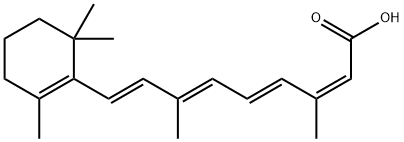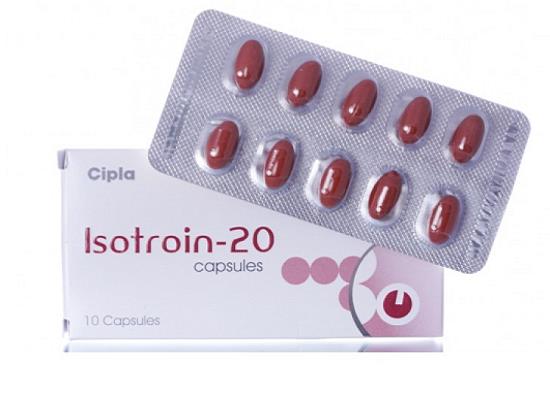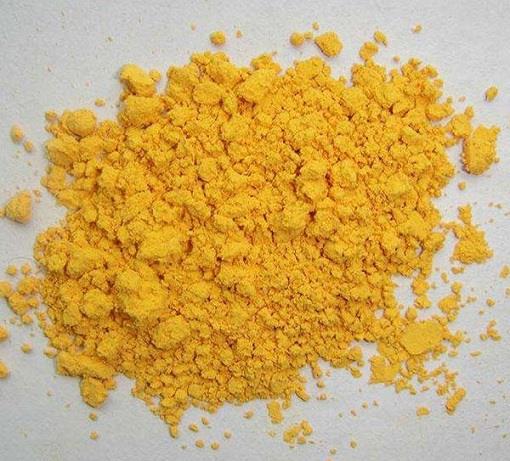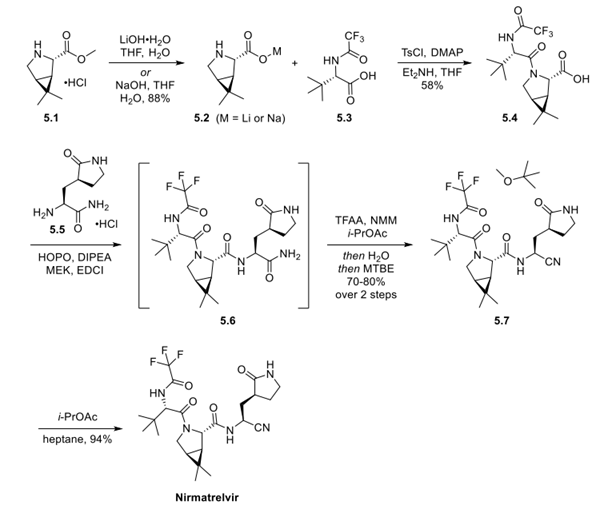Isotretinoin: Pharmacokinetics and Effectiveness
General Description
Isotretinoin is a highly lipophilic drug commonly used for the treatment of acne vulgaris. It has a strong affinity for fat, and its bioavailability is improved when taken with food. Isotretinoin is primarily eliminated from the body through feces and urine, and does not accumulate over time. Various trials have shown that low-dose isotretinoin is effective in treating mild to severe forms of acne after several weeks or months of treatment. The choice of regimen may depend on factors such as patient compliance and the risk of recurrence. Additionally, combining isotretinoin with other systemic treatments such as antihistamines or antibiotics has been found to be effective in improving clinical outcomes and reducing adverse events.
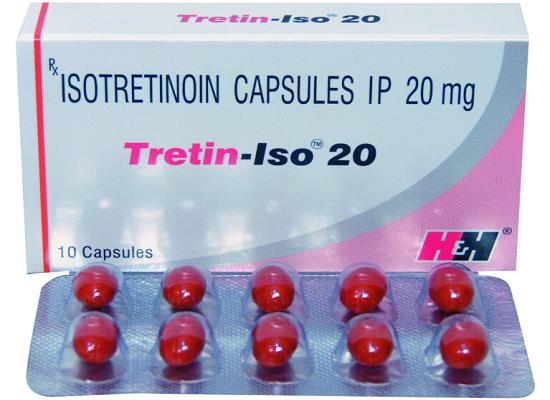
Figure 1. Capsules of isotretinoin
Pharmacokinetics
Isotretinoin is a derivative of vitamin A and is primarily used for the treatment of acne vulgaris. It was approved by the U.S. Food and Drug Administration (FDA) in 1982 and by the European Medicines Agency (EMA) in 1983. Isotretinoin is a highly lipophilic drug, which means it has a strong affinity for fat. Its bioavailability, or the amount of the drug that reaches the bloodstream, is increased when taken with food. A newer formulation called isotretinoin-lidose incorporates lipid agents, allowing it to be taken before or after meals. After administration, isotretinoin is metabolized in the body and excreted primarily through feces and urine. The main metabolite of isotretinoin is 13-cis-4-oxo-retinoic acid. Studies have shown that in patients receiving isotretinoin at doses of 0.5–1 mg/kg/day, both the drug and its metabolites return to natural levels within two weeks after discontinuation of treatment. This indicates that isotretinoin does not accumulate in the body over time. In summary, isotretinoin is a highly lipophilic drug that is commonly used for the treatment of acne vulgaris. Its bioavailability is improved when taken with food, and it is primarily eliminated from the body through feces and urine. 1
Effectiveness
Different treatment regimens compared
Isotretinoin is a widely used treatment for severe forms of acne that do not respond to conventional therapies. Several studies have compared different treatment regimens of oral isotretinoin. A 24-week study found that both low daily dose and conventional continuous dose regimens were similarly effective in reducing inflammatory lesions, while intermittent dosing was less effective. Another study showed that all dosing regimens had equal reduction in acne severity, but the intermittent dose group had a higher incidence of recurrence at the 12-month follow-up. A study comparing different treatment protocols found that a dose of 1 mg/kg/day led to faster clearance of lesions, with a recommended initial full-dose treatment followed by a low-dose regimen to minimize side effects. Additionally, a low-dose regimen was found to be superior to the conventional full dose in mild-to-moderate forms of acne. Comparing intermittent and continuous low-dose regimens, the continuous regimen was slightly more effective due to better compliance and lower risk of recurrence. Overall, various trials have shown that low-dose isotretinoin is effective in treating mild to severe forms of acne after several weeks or months of treatment. The choice of regimen may depend on factors such as patient compliance and the risk of recurrence. 2
Isotretinoin in association with other systemic treatments
Several studies have examined the efficacy of combining isotretinoin with other systemic treatments for the management of severe acne. One such study conducted by Pandey and Agrawal involved 100 patients and compared the effectiveness and safety of isotretinoin alone versus isotretinoin in combination with levocetirizine, an antihistamine. The results showed that the combined treatment group had a better clinical response, with fewer instances of acne flare-ups and a lower incidence of adverse events. This can be attributed to the synergistic effect of levocetirizine. Additionally, comparisons have been made between isotretinoin alone and isotretinoin in combination with oral antibiotics. De and Kanwar conducted a study involving 66 patients with severe acne who were treated with a combination of low-dose isotretinoin and pulsed oral azithromycin for 16 weeks. The results showed that 93.9% of patients achieved complete regression of the disease, with a mean cumulative dose of 49.6 mg/kg of isotretinoin. Similar positive outcomes were reported in other studies as well. These findings highlight the potential benefits of combining isotretinoin with other systemic treatments in the management of severe acne, leading to improved clinical outcomes and a reduction in adverse events. 3
Reference
1. Wiegand UW, Chou RC. Pharmacokinetics of oral isotretinoin. J Am Acad Dermatol. 1998;39(2):8–12.
2. Villani A, Nastro F, Di Vico F, Fabbrocini G, Annunziata MC, Genco L. Oral isotretinoin for acne: a complete overview. Expert Opin Drug Saf. 2022;21(8):1027-1037.
3. Pandey D, Agrawal S. Efficacy of Isotretinoin and Antihistamine versus Isotretinoin Alone in the Treatment of Moderate to Severe Acne: A Randomised Control Trial. Kathmandu Univ Med J (KUMJ). 2019;17(65):14-19.
You may like
Related articles And Qustion
See also
Lastest Price from Isotretinoin manufacturers
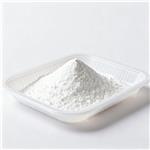
US $0.00/Box2025-10-14
- CAS:
- 4759-48-2
- Min. Order:
- 1Box
- Purity:
- 99%
- Supply Ability:
- 10tons

US $10.00/box2025-09-04
- CAS:
- 4759-48-2
- Min. Order:
- 1box
- Purity:
- 99.99%
- Supply Ability:
- 9999
